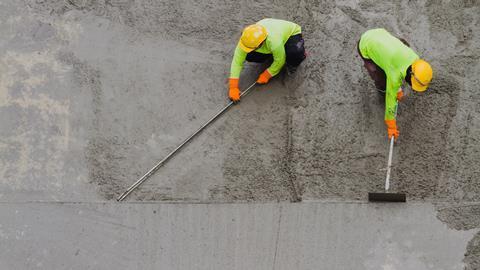Advantages of Using Concrete for Home Construction in Australia

Australia is a large country with a population of 26 million. It has a highly developed economy, the 14th largest in the world. Over 80% of its population lives in urban areas, with houses of varying architectural designs. These designs have evolved over the years, but one question that remains a hot topic in the construction industry is whether to use wood or concrete.
Each material has its own advantages and disadvantages, but the concrete in Australia is ultimately the safer choice. Here are the reasons:
- A house made of concrete is more structurally sound compared to one made of wood. It is very durable, capable of lasting for generations when properly made. It does not rust, rot, or catch fire. It is also resistant to moisture, soaking up only small amounts of water. That is, some manage to make its way through the stucco in the first place. With concrete walls, your interior is less likely to get damaged over the years.
If you are looking to invest in a home for your family, using concrete will ensure that it does not crumble or rot away for the foreseeable future. - With a concrete house, you are exposed to fewer risks, such as fire, strong wind, and insect infestations, all elements that can undermine the structural integrity of a wooden house. The low moisture level that it absorbs discourages mould growth, which is one of the leading concerns for wooden structures, especially in areas with high rainfall and humidity. Mould infestation not only weakens a house’s foundations but also presents a serious health hazard. In mild cases, it can cause respiratory and skin irritations. In the worst cases, it severely debilitates susceptible individuals. Concrete is a non-organic material that is less hospitable to mould, mildew, and other microorganisms, making it easier to maintain indoor air quality.
- Concrete walls provide excellent insulation, capable of absorbing and retaining more heat. Concrete in Australian homes requires much less energy to warm or cool, helping keep your energy bill low and protecting your HVAC system, whatever the season. This advantage is important, especially with the Australian weather, which can be a bit extreme.
Concrete is also more effective in blocking noise from the outside. With a concrete house, you can expect to come home to a peaceful and quiet place to easily relax after a long chaotic day at work.
Building a house using concrete may cost a bit more upfront, but the savings from lower utility bills and value you would be getting in return make it a more cost-efficient option in the long run. And with a long term investment such as a house, you would surely get your money’s worth in time. - Using concrete for home construction is labour-intensive and could eat up more time than a build using wood. But the perks it offers far outweighs the added time and energy. When it comes to sustainability, significant strides have been made to reduce the carbon footprint generated from the entire supply chain of cement, from manufacturing to transportation. Limestone, which is one of its major components, occurs naturally and is one of the most abundant minerals on earth. With the increased energy efficiency of a concrete home, its carbon footprint is reduced even further.
People say that you get exactly what you put into something. For a long-term investment like a house, using concrete in Australia ensures that you get a place, your family, and your kids’ families can call home for years to come.
About the Author:
Reba Webb is a farmer of words in the field of creativity. She is an experienced independent content writer with a demonstrated history of working in the writing and editing industry. She is a multi-niche content chef who loves cooking new things.
More to Read:
Previous Posts:


